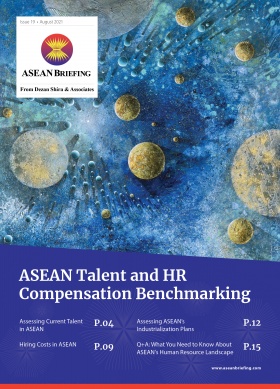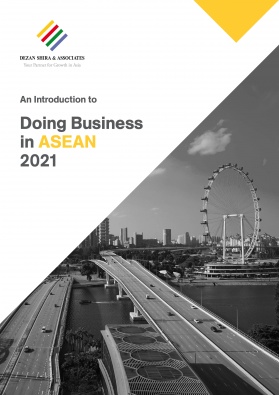Due Diligence in ASEAN
Due diligence allows investors to make informed business decisions and minimize exposure to risks, whether they be legal, ethical, or operational.
Thorough due diligence is especially important in ASEAN, where foreign investors confront a host of unique challenges that may not exist in their home markets. Many face the challenge of operating in multiple countries with different legal systems, business practices, and different levels of development, which increases their exposure to fraud, corruption, and legal violations.
Navigating these various issues requires due diligence that takes a comprehensive view of a company’s operations, from internal processes to relationships with external stakeholders. Successful due diligence allows companies to minimize their risk exposure and capture the benefits of the ASEAN market with minimal disruptions.
Protecting against fraud
Like in many emerging markets, foreign investors in Southeast Asia face heightened fraud risks. One of the most common forms of fraud involves inappropriate relationships between employees and vendors, but fraud also manifests in asset misappropriation, misleading financial statements, resume fraud, and innumerable other violations.
Conducting thorough due diligence can identify fraud risks, allowing companies to take steps to minimize their exposure. This is important for combating both internal and external threats.Many companies focus on external fraud, but internal fraud is an equally large risk. A global survey conducted by PwC in 2020 found that 39 percent of incidents of fraud come from an external perpetrator, 37 percent come from an internal perpetrator, and 20 percent come from collusion between internal and external perpetrators.
In Southeast Asia, online fraud and cybersecurity threats are especially prevalent. This is due in large part to the region’s large population and relatively low levels of digital literacy and fraud awareness.
According to a report from the mobile analytics company AppsFlyer, Southeast Asia was responsible for 40 percent of the Asia Pacific region’s total losses from online ad fraud. Similarly, the online payment company CyberSource found that an average of 1.6 percent of online revenue in Southeast Asia is lost to fraud, with Indonesia the worst performer at 3.2 percent.
Protecting against cyber fraud necessitates a multi-faceted strategy, including conducting an internal risk assessment, establishing a cybersecurity regime, and conducting due diligence on business partners’ cyber risks.
Rooting out corruption
Corruption is prevalent in many ASEAN countries, which poses risks and uncertainty for foreign investors.
In countries with high levels of government corruption, businesses may be expected to pay bribes to officials to receive approvals, avoid arbitrary fines, and accomplish other bureaucratic tasks. Corruption at high levels of government and business, meanwhile, can create an uneven playing field and distort the market in favor of insiders.
Further, entering a partnership with a corrupt business or individual – whether it be a joint venture partner, a vendor, or a supplier – exposes investors to a number of legal and ethical risks.
Transparency International’s corruption perceptions index gives Southeast Asian countries the following scores, where zero is the highest level of corruption and 100 the lowest:
Singapore is perceived as the third least corrupt country in the world, according to Transparency International. Singapore’s reputation for clean government and rule of law is a major reason that the city-state is a financial and operational hub for foreign investors in Southeast Asia.
Conversely, Transparency International ranks seven of the 10 ASEAN member states outside of the top hundred least corrupt countries. On the extreme end, Cambodia’s rank of 160 out of 180 countries and territories puts it among the most corrupt countries in the world.Corruption is common in Southeast Asia, but often difficult to observe on the surface. This means undertaking due diligence is a must when operating in ASEAN, enabling companies to avoid penalties and losses and to make informed business decisions.
Combating ESG violations
Stakeholders increasingly expect companies to maintain environmental, social, and governance (ESG) standards in their operations, partnerships, and supply chains, which necessitates them to undertake ESG due diligence.
In July 2021, for example, the EU released due diligence guidelines to encourage European companies to eliminate forced labor in their supply chains. In 2015, the UK passed the influential Modern Slavery Act, which aims to combat forced labor and human trafficking in the UK and abroad. Developments such as these show a trend towards legally obligating companies to be responsible for ESG violations in their global supply chains.
Companies operating in ASEAN face heightened ESG risks. The region has some of the highest levels of forced labor in the world, especially in industries relating to resources, agriculture, and fishing.
Data compiled by the rights organization Walk Free suggests that Southeast Asia has millions of victims of forced labor. Per capita, Cambodia, Myanmar, and Brunei have the highest rates of forced labor in Southeast Asia, while Indonesia, Myanmar, and Vietnam have the most violations in absolute terms.
In addition to forced labor, suppliers and contractors may engage in other labor violations, such as withholding wages and having unsafe working conditions. Other ESG risks include illegal pollution and waste disposal practices, discriminatory hiring processes, and corruption.
From due diligence to internal controls
Companies in Southeast Asia face a number of unique business risks, requiring comprehensive due diligence that takes into account diverse business functions and operational contexts.
Due diligence identifies risks and roots out bad actors, whether internal or external. Sustainably minimizing threats in the long run, however, requires the establishment of internal controls that bake secure practices into the company’s business processes.
Successfully implementing such internal policies reduces corporate exposure to unexpected financial, legal, and reputational costs, allowing companies to capitalize on the dynamism of ASEAN markets.
About Us
ASEAN Briefing is produced by Dezan Shira & Associates. The firm assists foreign investors throughout Asia and maintains offices throughout ASEAN, including in Singapore, Hanoi, Ho Chi Minh City, and Da Nang in Vietnam, Munich, and Esen in Germany, Boston, and Salt Lake City in the United States, Milan, Conegliano, and Udine in Italy, in addition to Jakarta, and Batam in Indonesia. We also have partner firms in Malaysia, Bangladesh, the Philippines, and Thailand as well as our practices in China and India. Please contact us at asia@dezshira.com or visit our website at www.dezshira.com.
- Previous Article A Guide to Withholding Taxes in Singapore
- Next Article E-Commerce License and Permit Fees in Cambodia









